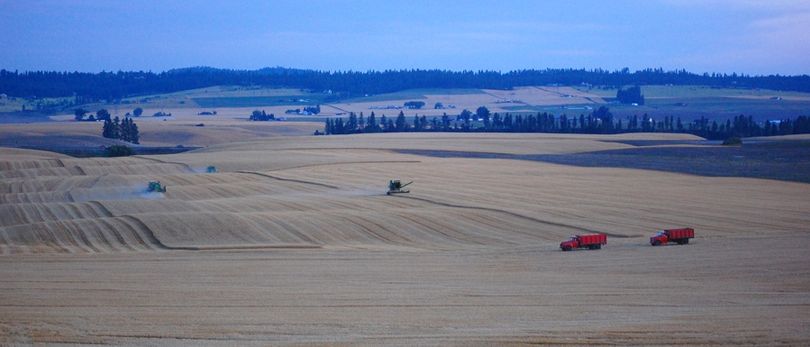Revisiting the Inlander’s Recent Commentary on Shepherd’s Grain

I'm continuing to work my way through David Montgomery's book, "Dirt: The Erosion of Civilizations". His basic thesis is that in conversations about sustainability, the erosion and depletion of soils is a huge issue. Go here for my previous post from the book. I thought I understood the basics of soil, but the book has exposed some real gaps in my knowledge. For example:
- "The United States Department of Agriculture estimates that it takes five hundred years to produce an inch of topsoil." This is the natural process of the breaking down of rocks into mineral rich topsoil." p. 24
- In many tropical regions the rainfall over time leaches all of the nutrients out of the soil itself. "As most of the nutrients in these areas reside not in the soil but in the plants themselves, onces the native vegetation disappears, so does the productive capactiy of the soil. Often too few nutrients remain to support either crops or livestock within decades of deforestation." The richness of the Tropical rainforest is in the way it recycles the nutrients, not in the inherent richness of the soils. p. 19
- "the United States Department of Agriculture estimates that millions of tons of topsoil are eroded annually from farmers' fields in the Mississippi River basin. Every second, North America's largest river carried another dump truck's load of topsoil to the Caribbean. Each year, America's farms shed enough soil to fill a pickup truck for every family in the country." p. 4
- No till agriculture "could provide one of the few relatively rapid responses to help hold off global warming. When soil is plowed and exposed to the air, oxidization of organic matter releases carbon dioxide gas. No-till agriculture has the potential to increase the organic matter content of the top few inches of soil by about 1 % a decade...over twenty to thirty years that can add up to 10 tons of carbon per acre...A third of the total carbon dioxide buildup in the atmosphere since the industrial revolution has come not from fossil fuels but from degradation of soil organic matter" p. 213 See Shepherd's Grain for a local no-till success story.
The Inlander recently wrote a commentary on Shepherd's Grain's efforts at encouraging no-till wheat farming. While the piece was descriptive of many of the benefits listed above, the tone was skeptical and the conclusion of the article essentially dismissed their efforts as beholden to the chemical-industrial complex because they use Roundup as part of their no-till practices. I am grateful for the Inlander's wonderful coverage of Spokane's food culture and community but in this case I think they could have and should have been more generous in their evaluation of Shepherd's Grain. They are a great local story of the way more sustainable practices can be profitable. They aren't perfect, but it's not like every other till farmer on the Palouse isn't using Roundup too.
Ironically organic farming practices are some of the most intensive when it comes to tilling. Instead of using Roundup to knock back the weeds they continually till the soil. It could be that using Roundup is the more sustainable practice at the end of the day.
